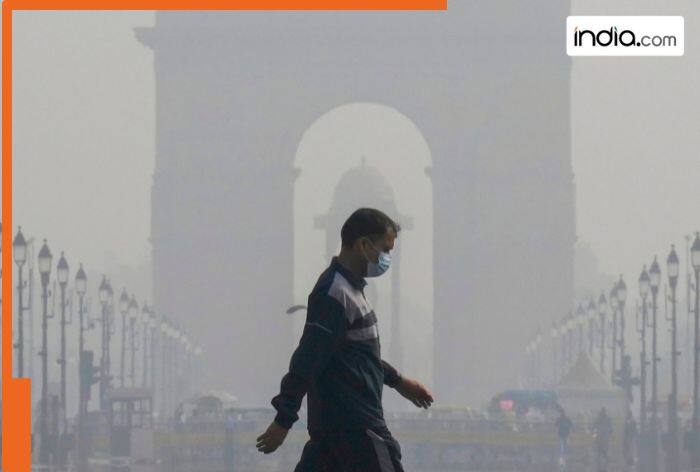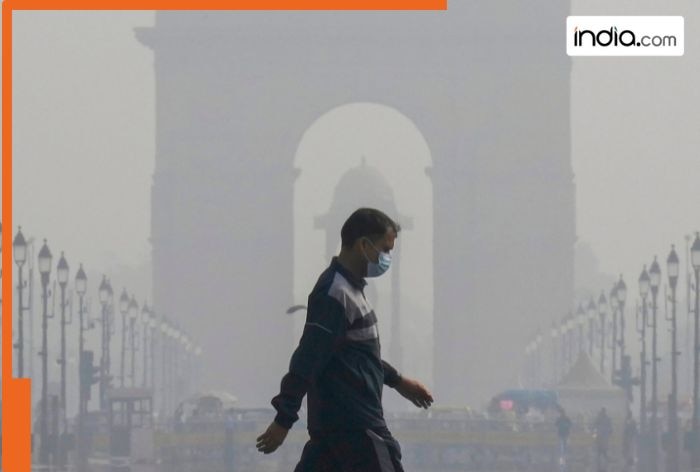Did you know that the toxic air that Delhi is breathing currently can actually put your cardiovascular health at risk?

‘Delhi is breathing toxic air,’ ‘ Capital is wrapped in a toxic air blanket,’ etc. These are everyday headers and topic of conversation. If you are a local from Delhi, you would understand how the capital city breathes toxic air every year. The Air Quality Index (AQI) in Delhi was labelled at ‘severe’ today. In recent years, poor air quality has been identified as a new risk factor for heart disease, adding to the well-established risks like smoking, hypertension, and high cholesterol.
In cities like Delhi, where AQI often reaches alarming levels, exposure to air pollution can be as harmful as smoking ten cigarettes a day. This article explores how high AQI levels specifically impact cardiovascular health, the symptoms experienced by heart patients, and the measures they can take to manage and mitigate these risks.
Understanding AQI Levels and Cardiovascular Impact
The Air Quality Index (AQI) provides a standardised way to measure air pollution and its potential health effects. According to Dr VC Chauhan Interventional Cardiologist, Bhailal Amin General Hospital, Vadodara here is how AQI levels affect heart health:
- Poor Harmful to sensitive groups, including those with CVD 120
- Very Poor Increased risk of health effects, more severe for heart patients 250
- Severe Health warning, adverse effects for everyone, particularly dangerous for CVD patients 380
The primary sources of pollution, like fuel and biomass burning, adulterated fuel, chemical hazards, and traffic congestion, release harmful particles (such as PM2.5) and gases into the air. These pollutants can trigger and exacerbate cardiovascular conditions, increasing the likelihood of both immediate and long-term health complications.
Short-Term Symptoms in High AQI Conditions
- Chest Discomfort: This may range from mild tightness to severe pain and can be a warning sign of worsening heart disease.
- Palpitations or Feeling of Anxiety: Poor air quality can strain the heart, causing irregular heartbeats or palpitations.
- Shortness of Breath: Breathing in polluted air can restrict airflow and oxygen intake, making it hard to breathe.
- Sensation of Choking or Air Hunger: As pollutants obstruct the lungs and circulatory system, a sensation of choking may arise, which is alarming for heart patients.
Long-Term Risks for Cardiovascular Patients Exposed to Poor Air Quality
The long-term consequences of repeated exposure to poor air quality are concerning for cardiovascular health. When pollutants enter the bloodstream via the lungs, they circulate through the body, leading to several potential health risks:
- Damage to Blood Vessels: Pollutants can narrow and harden blood vessels, making it more difficult for blood to flow freely. Over time, this increases the risk of hypertension and strain on the heart.
- Increased Blood Clot Risk: Poor air quality can make blood more prone to clotting. This elevates the risk of heart attacks and strokes, especially in individuals with existing cardiovascular issues.
- Elevated Blood Pressure: Pollutants put added strain on the heart, which then pumps faster to ensure proper circulation, further elevating blood pressure.
- Irregular Heart Rhythms: Certain pollutants can interfere with the heart’s electrical system, leading to abnormal rhythms that increase cardiovascular stress.
For individuals with cardiovascular conditions, high AQI is not just a number but a critical factor that can exacerbate existing health issues and lead to serious, sometimes life-threatening complications. Awareness and proactive steps to reduce exposure to air pollution can be crucial in managing symptoms and reducing the risk of long-term cardiovascular harm.

